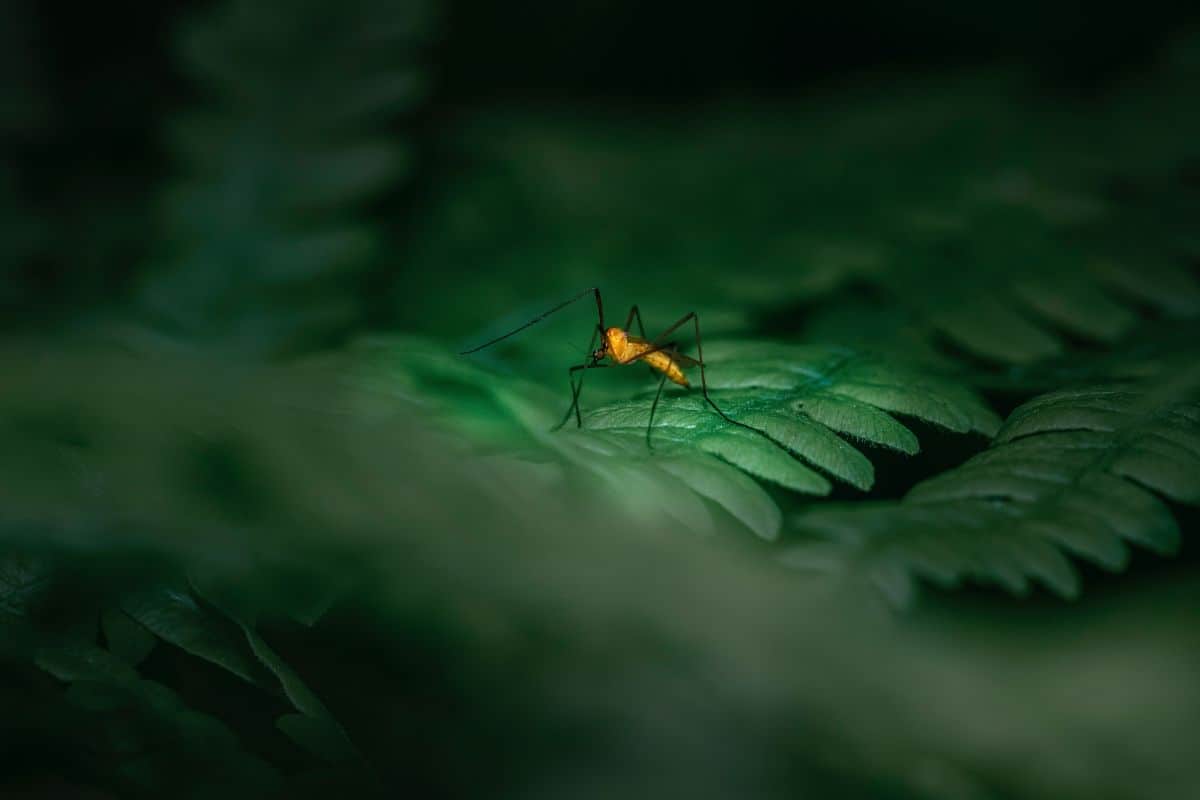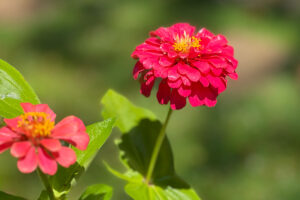This page may contain affiliate links. If you click and buy, we might get a small commission at no cost to you.
I’m sure you know how annoying it is to be bitten by mosquitos. On top of that, the diseases some mosquito species carry are also dangerous! It’s usually the females that bite since they need protein and iron from blood to lay their eggs. Although their lifespans are only a few weeks, they can lay up to 3,000 eggs during this time for more pests to take their place. It definitely pays to know how to prevent mosquitoes from breeding in your backyard.
In this article we learn about the life cycle of mosquitos and give you 10 tips you can use for your outdoor space today to avoid a swarm of pesky mosquitoes. Don’t let them ruin your fun outdoor plans!
Mosquito breeding habits
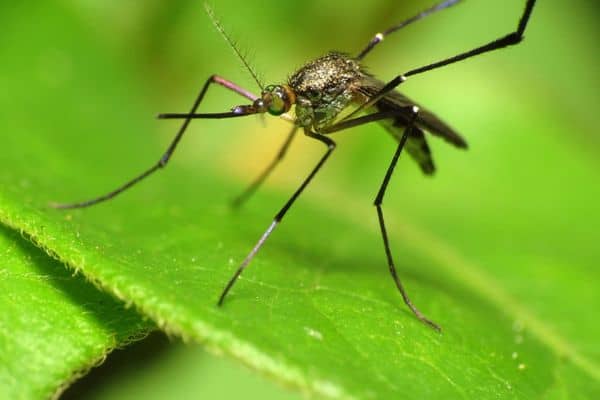
Mosquitoes will start breeding after around 28 hours of becoming an adult. Female mosquitoes can typically lay eggs for their entire short lifespan. While different species seek different water sources, all mosquitoes need water to lay their eggs.
Once the eggs are laid, they can only hatch if they are submerged in water and most eggs will hatch after 48 to 72 hours of being exposed to water. After hatching, mosquitoes are aquatic larva that lives in the water.
They feed off bacteria and other microorganisms that collect in standing water, such as leaves, soils, grass clippings, and bird droppings. It takes around 5 days for the larva to become pupae that then turn into adult flying mosquitoes in 2 or 3 days.
How to Prevent Mosquitoes from Breeding in Your Backyard
Mix and match these 10 tips for the best overall results of a mosquito-free backyard.
1. Clear out any standing water
Mosquitoes don’t need a big pool of water to breed. They can effectively use puddles, ditches, standing water in flower pots, birdbaths, or any structure left in your yard that fills up with water after a storm. Avoid overwatering your plants and check your property after heavy rains to get rid of standing water.
If you have any debris collecting in your gutters, drains, containers, or empty tires lying around, make sure to remove them. Toys or buckets you’ll use later should be stored in sheltered areas or flipped over, so they don’t hold water.
For birdbaths or outdoor water features, consider adding moving water to them, such as mini-fountains. Mosquitoes are less likely to survive if the water isn’t still.
2. Put out some mosquito traps
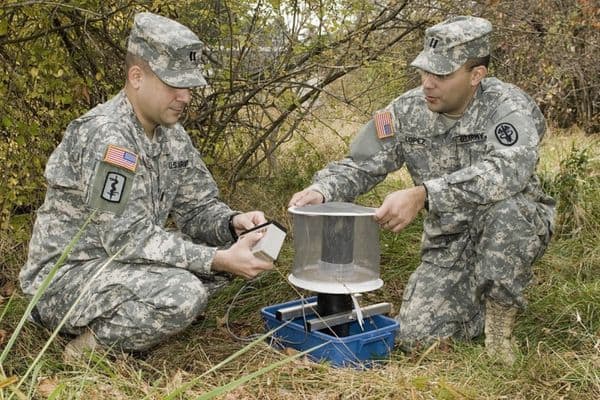
Placing mosquito traps near mosquito breeding sites can help you trap and kill mosquito populations. Since mosquitoes are attracted to the CO2 we exhale and our body scent to identify their food source, these traps mimic these conditions to lure them in.
The BIOGENTS BG-Mosquitaire product attaches to a CO2 tank and releases the gas and patented scent hormones that lure in blood-sucking mosquitoes. This eco-friendly trapper doesn’t use UV light like some mosquito zapper products, which can attract beneficial insects such as bees and butterflies.
3. Regularly replace water sources
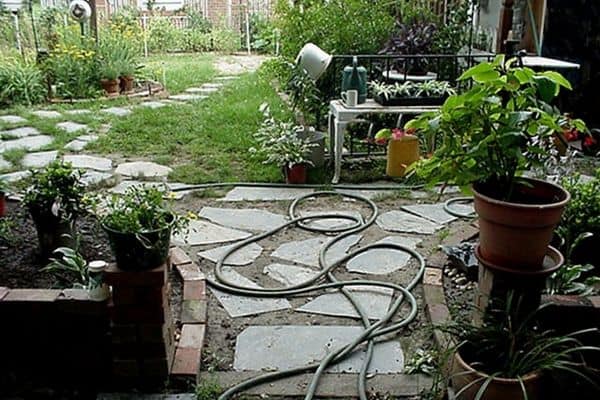
If you can’t remove all standing water sources, such as your pet’s water bowl, make sure to replace it with fresh water daily. You’ll also want to empty and clean any collection pans for plant pots weekly. If you have a pool or jacuzzi, make sure to regularly clean it, keep it chlorinated, and replace water filters.
This way, you will deter mosquitos from laying their eggs in the filter or water. Mosquito eggs will hatch within 2 or 3 days and the larvae need bacteria in still water to survive.
Therefore, replacing these water sources frequently removes the eggs and potential food sources, making it harder for mosquitoes to reproduce effectively in your yard.
4. Monitor potential hiding places
Mosquitos are attracted to overgrown bushes, branches, weeds, and grass, so by keeping your yard clean, you’re less likely to attract them. Trim your overgrown plants and grass to eliminate these moist areas where mosquitoes can hide and rest.
These insects are also quite creative with where they choose to hide or breed, so also monitor any holes in your trees or crevices on your porch. When possible, fill these spaces with sand or other materials, such as a waterproof silicone sealant.
5. Fix or upgrade your appliances
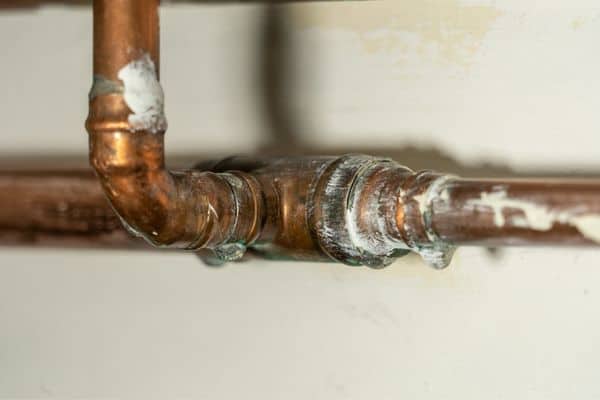
Water sources for mosquitoes to breed in can also come from plumbing and home appliances that need updating. Prevent standing water pools by doing routine check-ups and maintenance of your outdoor space. This includes fixing:
- Loosely secured hoses
- Leaking pipes
- Window air conditioners dripping condensation
You can also install drainage solutions around your home to prevent standing water issues. For example, a French drain collects water and redirects it away from your home. It has a perforated pipe and a slightly sloped trench filled with water.
Another solution is to attach a catch basin connected to a drainpipe to your planter boxes. This way water doesn’t pool at the bottom of pots.
6. Introduce mosquito predators to your yard
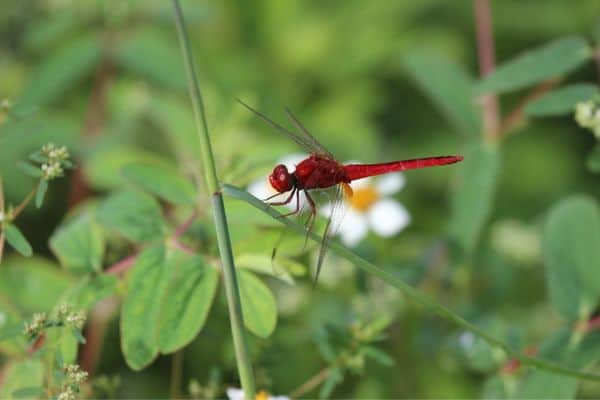
Set your yard up to attract natural predators of mosquitos such as dragonflies, bats, and insect-eating birds. Dragonflies like to sun themselves on flat rocks and like water plants such as fanwort, eelgrass, or baby pondweeds. For bats and birds, you can put up bat houses or bird houses.
If you have a water garden or pond, try to make it deeper water since mosquitoes prefer shallow water. Also, consider getting some mosquito-eating fish. Mosquito fish or minnows are easy to care for and great for smaller ponds.
Goldfish and koi are other options for larger ponds. Frogs are another mosquito predator you can get for your water garden.
7. Use larvicides in standing water
Using larvicides will help prevent the mosquito larvae from surviving. You can purchase larvicide pouches or pellets for standing water sources, such as drainage ditches, ponds, water gardens, and flower pots. These kill the larvae after they ingest them.
Make sure you don’t have fish or other living animals in your ponds before using this method. However, some products are safe for other insects in your yard, such as dragonflies.
8. Grow mosquito repellant plants
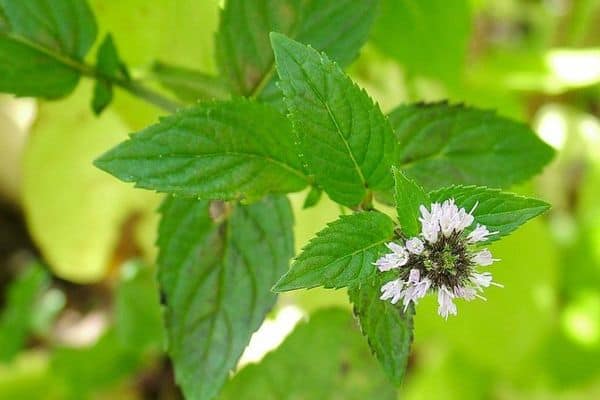
There are certain plants that mosquitoes dislike the smell of and make great additions to gardens. Plant them in areas with potential for standing water or hiding places. Examples of mosquito-repelling flowers and herbs include:
- Citronella
- Peppermint
- Basil
- Marigolds
- Lavender
- Lemon eucalyptus
- Chrysanthemums
- Pennyroyal
- Feverfew
- Geraniums
- Garlic
- Rosemary
9. Use natural mosquito repellent products and sprays
While insecticides exist, these chemicals can cause skin irritation and kill birds or essential pollinators like bees. Instead, try an eco-friendly mosquito repellent that’s a safer alternative to pesticide sprays or foggers. You can also use mosquito repellent incense sticks with essential oil scents for your outdoor space to deter mosquitoes from hanging out.
If you want to make your own natural repellent to spray in your yard, here are two DIY recipes:
- Mix mint-flavored mouthwash, Epson salt, and stale beer until the Epson salt melts
- Mix apple cider vinegar, water, and essential oil scents such as peppermint, cedar-wood, or lemongrass
10. Scatter or burn coffee grounds
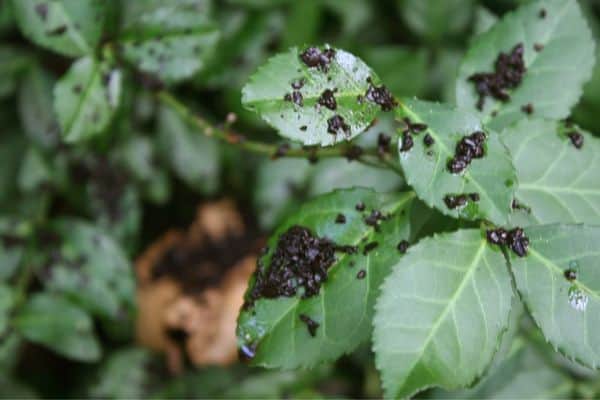
By scattering coffee grounds in stagnant water, you can prevent mosquito eggs and larvae from surviving. For instance, coffee in water forces the eggs to rise to the surface and deprives them of oxygen, so they don’t hatch.
Adult mosquitoes also dislike the smell of coffee grounds, so you can scatter them around your potted plants. For a more potent repellent, burn your used coffee grounds in a bowl or on a flat fire-safe surface.
On top of the smell, the smoke will signal danger to mosquitoes. You can even set up several burning stations around an outdoor gathering to prevent mosquitoes.
